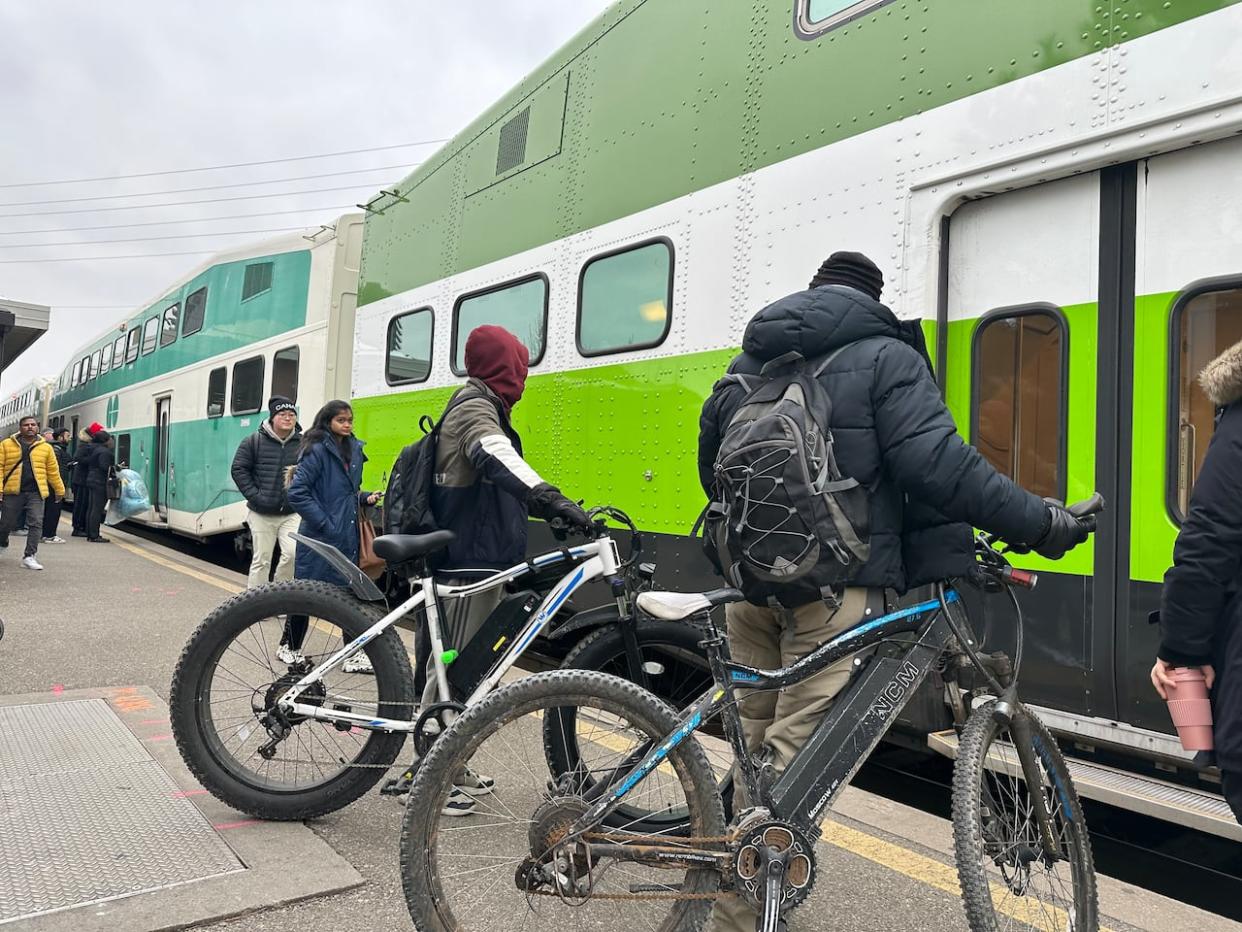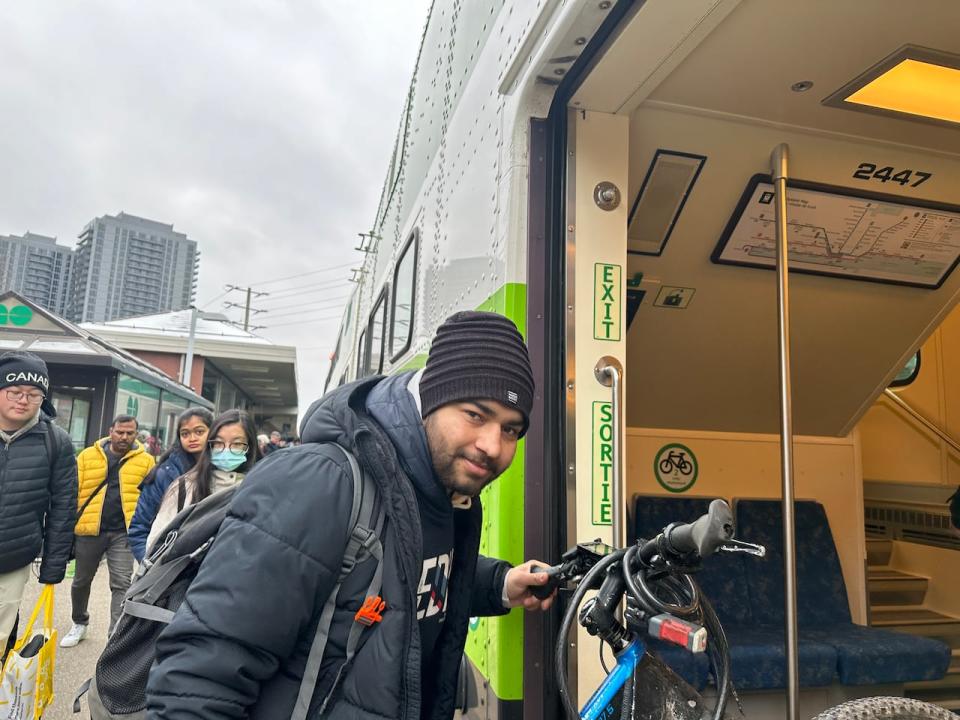Metrolinx says no change to e-bike policy on GO Transit after fire on Toronto subway train

After an e-bike fire on a TTC subway car last Sunday, Metrolinx says it is not changing its policy permitting e-bikes on GO trains and buses — and that's welcome news for some students living outside of Toronto.
"At this time, e-bikes are permitted on GO Transit vehicles, however we have been reviewing this policy," the provincial transit agency's spokesperson Andrea Ernesaks told CBC Toronto.
In Canada, e-bike sales are estimated to grow from $733.4M US in 2022 to over $2 billion US in 2030, according to market data research company Grand View Research. The company says more than 70 per cent of that growth comes from lithium ion e-bikes.
Asked if it might crack down on lithium ion-powered vehicles on trains, the TTC has said it will determine next steps after it has a clearer understanding of what happened Sunday. But for now, many who travel to and from Toronto with e-bikes are relieved Metrolinx isn't planning any changes.
Student and part time Uber Eats employee Karan Singh Grewal is one of them.
Grewal moved to Canada four months ago and says being able to take his e-bike on the GO train to work as an UberEats delivery driver has helped him "survive" while he tries to make ends meet while looking for a job.
"We have to survive and earn the money," said Grewal, who lives in Brampton.
The e-bike is also saving him transit fares.
"We can use the bike without using the bus and go anywhere for approximately seven to eight kilometres. It's a good way to reach any place," Grewal said.

Grewal says being able to take his e-bike to Toronto to work with Uber Eats on the GO train helps him 'survive' as he hasn't been able to find a job for the past four months. (Saloni Bhugra/CBC)
But not everyone feels comfortable with e-bikes on trains.
GO train user Devanshi Pundir feels they're a safety concern.
"It causes a lot of problems for us because sometimes they block the doors. Sometimes in one coach there are six to seven bikes," Pundir said.
Metrolinx says it introduced six dedicated cars specifically for passengers with e-bikes in 2021 to reduce the congestion that larger and heavier e-bikes can cause. Those coaches are only available on the weekends from the Union to Niagara GO train, however. E-bike users are not allowed to use the trains arriving to or leaving Union during morning and evening weekday rush hours and during evening rush hours.
Outside of rush hours, Metrolinx's policy allows only two bikes on cars that are not dedicated to e-bike users. Grewal said he often misses a train because of that.
"It's really difficult for us," he said.
Brampton student Prayush Shrestha says he is seeing more of his friends relying on e-bikes and is planning to buy one himself.
"The situation right now is like that students are forced to do Ubers," he said.
Shreshta said fires happen "once in a while" and that shouldn't undermine the benefits of e-bikes.
At least one biking advocate agrees.
"The disturbing increase in the number of fires linked to e-bike lithium-ion batteries should be viewed in the context of this dramatic growth," chair of Safe cycling advocacy group Bike Brampton, David Laing said.


